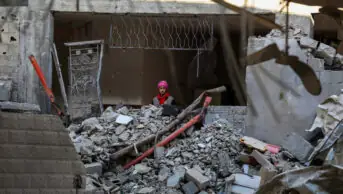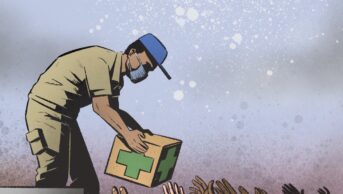Liberia is free from Ebola, the World Health Organization (WHO) announced on 9 May 2015.
The last confirmed case in the country was buried on 28 March 2015, 42 days previously — the timeframe used to confirm the country is free of the virus.
The case was a woman in the greater Monrovia area who developed symptoms on 20 March 2015 and died seven days later.
WHO says interrupted transmission of the disease is a “monumental achievement” for Liberia which at the peak of the epidemic in August and September 2014 was seeing 300–400 new cases confirmed weekly.
In total, 4,716 people died in Liberia during the current epidemic. It had 10,564 confirmed cases of the virus.
The transmission of Ebola in other West African countries is also declining, according to WHO’s latest surveillance figures.
There were 18 new cases confirmed in Guinea and Sierra Leone in the week to 3 May 2015. Each country had nine new cases; the figures represent the lowest weekly count so far in 2015, according to WHO.
“That both countries have each reported fewer than ten cases is encouraging but it is important to guard against complacency,” it says.
Guinea and Sierra Leone will only be declared Ebola-free if there are no new cases reported for 42 consecutive days after the burial of the last Ebola victim, it adds.
According to WHO statistics up until 3 May 2015, there were 26,593 confirmed, probable and suspected cases of Ebola in Guinea, Liberia and Sierra Leone, with 11,005 reported deaths.

